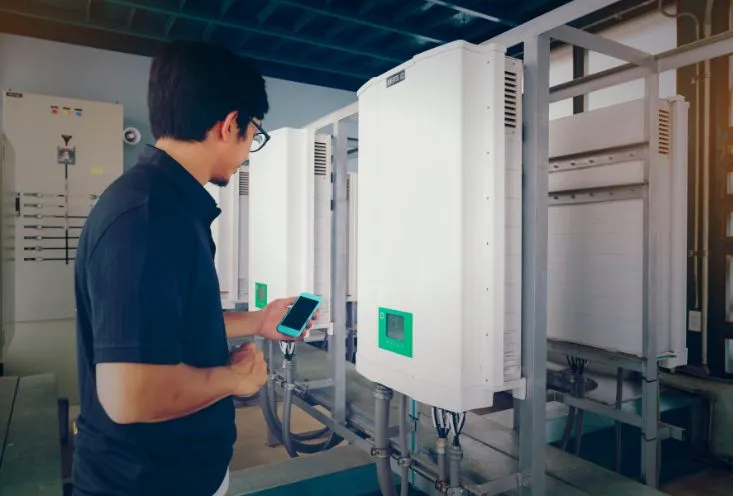Table of Contents
ToggleIntroduction:
Solar energy is a reliable and sustainable source of power. However, it’s essential to understand the impact of heat on solar production and the crucial role inverters play in mitigating these effects. In this blog, we will explore how heat affects solar panel performance and highlight the significance of inverters in optimizing energy production under high-temperature conditions.
Heat and Solar Panel Performance:
a) Temperature Coefficient: Solar panels are designed to work efficiently under various temperature conditions. However, excessive heat can affect their performance. Solar panels have a temperature coefficient, which indicates the percentage decrease in energy output with every degree rise in temperature above the standard testing condition.
b) Efficiency Reduction: High temperatures can lead to a decrease in the efficiency of solar panels. This reduction in efficiency results in lower energy production and can impact the overall performance of the solar system.
Role of Inverters:
a) Temperature Management: Inverters are key components of a solar power system. They convert the direct current (DC) generated by the panels into usable alternating current (AC) for household consumption. Inverters play a crucial role in managing temperature-related issues.
b) Thermal Management: Advanced inverters are equipped with thermal management features to regulate temperature within the system. They use cooling mechanisms, such as fans or heat sinks, to dissipate excess heat and maintain optimal operating conditions for both the panels and the inverters themselves.
c) Maximum Power Point Tracking (MPPT): Inverters with MPPT technology ensure maximum energy production even under varying temperature conditions. MPPT continuously adjusts the voltage and current output to match the optimal power point of the solar panels, compensating for temperature-related fluctuations and maximizing energy harvest.
Benefits of Advanced Inverters:
a) Efficiency Optimization: Advanced inverters have higher efficiency ratings, allowing them to minimize energy losses due to heat. These inverters are designed to operate efficiently even at elevated temperatures, ensuring optimal energy conversion and higher overall system performance.
b) Safety Features: Inverters equipped with advanced thermal monitoring systems help protect the system from overheating. They have built-in safety mechanisms to prevent damage and shutdown in case of extreme temperature conditions, ensuring the longevity and reliability of the solar system.
Additional Heat Mitigation Measures:
a) Proper Installation: Ensuring proper installation of solar panels, including appropriate spacing and ventilation, can aid in heat dissipation and prevent hotspots.
b) Shading and Air Circulation: Managing shading from nearby objects and allowing for adequate air circulation around the solar panels can help reduce heat buildup and maintain system efficiency.
Conclusion:
Heat can impact the performance of solar panels, leading to reduced energy production. However, with the right choice of inverters and proper system design, these effects can be mitigated. Advanced inverters with thermal management features, such as cooling mechanisms and MPPT technology, play a crucial role in optimizing solar energy production even in high-temperature conditions. By investing in high-quality inverters and considering additional heat mitigation measures, homeowners can ensure their solar systems perform optimally, maximizing energy output and reaping the benefits of clean, renewable power.
Disclaimer: The information provided in this blog is for informational purposes only and should not be considered as professional advice. The effects of heat on solar production may vary based on individual circumstances, system configuration, and environmental factors. It is recommended to consult with a qualified solar professional for personalized guidance and to determine the most suitable inverters and system design for your specific needs and location.


